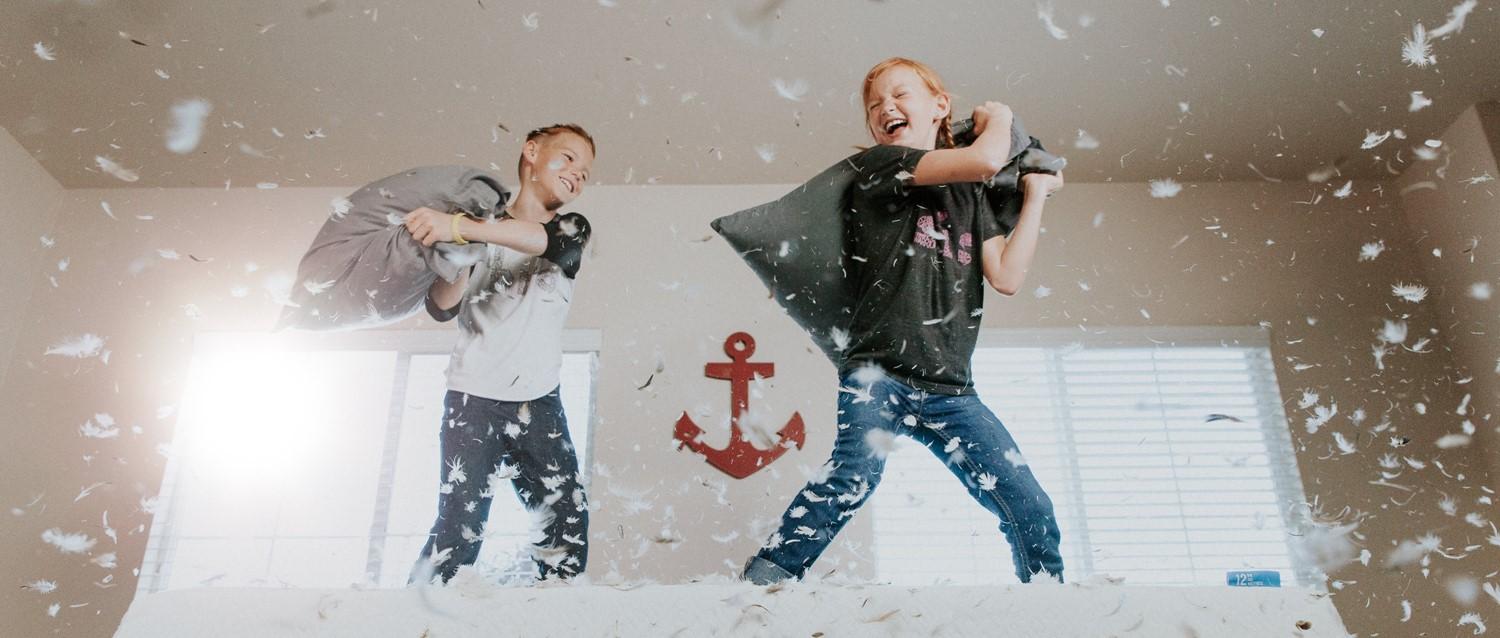
What to do when your child can't sleep
Peer reviewed by Dr Sarah Jarvis MBE, FRCGPLast updated by Julian TurnerLast updated 24 Dec 2018
Meets Patient’s editorial guidelines
- DownloadDownload
- Share
- Language
- Discussion
Sleep, along with diet and exercise, is fundamental to a child's emotional and physical well-being. But as many parents can attest, ensuring their kid gets adequate slumber is easier said than done. What should you do if counting sheep just isn't doing the trick for them? We ask a paediatrician for their top tips.
In this article:
Overall, a child will spend 40% of his or her childhood asleep, during which time blood supply to the muscles is increased, energy is restored, tissue repair occurs and growth hormones are released.
Recent research in the USA found that 7-year-olds who received less than the recommended amount of sleep during their toddler and preschool years had more difficulties with attention, emotional control, reasoning and problem-solving, and also experienced behavioural problems.
Continue reading below
What causes sleep problems in children?
"There are several causes of sleep problems in children that may be specific to certain age groups, such as gastric oesophageal reflux in babies, and night terrors in very young children or toddlers," explains Dr Sonali D'Cruz, a paediatrician with the NHS and the Runnymede Clinic in Surrey.
"As children approach school age, poor sleep may be a result of medical problems such as enlarged adenoids causing obstructive sleep apnoea, non-allergic rhinitis and bedwetting. While problems such as attention deficit hyperactivity disorder (ADHD) and autism are also known to be associated with disturbed sleep, and anxiety can also be an important underlying cause."
Sleep problems can also affect older children, she points out.
"In older children and adolescents, delayed sleep phase syndrome (DSPS), excessive use of digital media and poor bedtime routines are also significant contributory factors to sleep problems."
The importance of routine
The good news is that awareness of, and research into, disturbed sleep are increasing, and most sleep problems in children can be resolved by changing entrenched behaviours such as bedtime routines.
I speak from experience. D'Cruz treated my youngest son for sleep problems when he was 8 years old. In addition to improving my son's sleep hygiene, she limited his exposure to gadgets such as tablets for two hours before bedtime.
"There is a correlation between poor sleep and the increased use of digital media among children and adolescents," she explains. "A recent paper in Pediatrics, suggests that the possible mechanisms of poor sleep are: time displacement (ie time spent on screens replacing time spent on sleep); psychological stimulation due to media content, and light emitted from devices affecting circadian rhythm (our body clock)."
Continue reading below
Treat the cause
Whether or not poor sleep as a child translates to adult insomnia depends on the underlying cause.
"For medical problems such as sleep apnoea and bedwetting, once the root cause is treated sleep improves," says Dr D'Cruz.
"Better sleep practices will help when poor sleep hygiene is responsible. However, it is likely that in conditions such as ADHD, autism, anxiety and depression, sleep problems may persist into adulthood. I would recommend seeking help from a qualified psychiatrist or paediatrician to treat these types of conditions."
Should I give my child melatonin?
Melatonin is produced in the brain when it gets dark - to help us sleep. High levels of this hormone are produced in the night and low levels during the day. Melatonin deficiency can disrupt the body clock, so supplements are often used to alleviate problems such as insomnia.
"Melatonin can be used to treat difficulties with going to sleep or staying asleep," explains D'Cruz. "It is known to benefit children with ADHD, autism and other developmental disabilities, or visual impairment, as these children may not produce enough melatonin or produce it too late."
My son was eventually prescribed melatonin. But Dr D'Cruz points out that, for most children with sleep problems, behavioural strategies should be the first recourse before resorting to medication.
"Melatonin is a prescription-only medicine and there are no data on safety in long-term use," she says. "It is said to be safe for short- and medium-term use - ie up to 18 months or so. While melatonin seems to be safe, there is a lack of evidence regarding its routine use among healthy children."
Continue reading below
Better sleep for kids
Do not underestimate the power of self-help when it comes to adapting your child's behaviour and environment to improve their sleep, says D'Cruz. She recommends:
Avoid napping in the daytime.
Dinnertime should be at least two hours before bedtime.
Establish a predictable and calming bedtime routine (ie the same rituals leading up to bed).
The bedtime routine should not last more than an hour.
Limit light exposure and avoid screen time for a minimum of an hour before bedtime.
Children should sleep in their own beds.
Bedrooms should be dark, quiet and not too hot.
Establish a predictable and calming bedtime routine (ie the same rituals leading up to bed).
"First, ensure there is no underlying medical cause for the sleep problem and then implement good sleep hygiene," D'Cruz concludes. "There is a lot of help available online as well as through sleep clinics, while for younger children the health visitor can give advice."
Patient picks for Sleep and insomnia

Healthy living
Tips for better sleep in summer
Bright nights, hot bedrooms and high pollen counts can all mess with your shuteye in the summer. Here are some tips for sleeping better at this time of year.
by Abi Millar

Healthy living
Do you need more sleep in winter?
Feeling sleepy and sluggish in the middle of winter? You're not alone. We ask two sleep experts whether you really need more rest on colder, shorter days.
by Victoria Raw
Continue reading below
Article history
The information on this page is peer reviewed by qualified clinicians.
24 Dec 2018 | Latest version

Ask, share, connect.
Browse discussions, ask questions, and share experiences across hundreds of health topics.

Feeling unwell?
Assess your symptoms online for free
Sign up to the Patient newsletter
Your weekly dose of clear, trustworthy health advice - written to help you feel informed, confident and in control.
By subscribing you accept our Privacy Policy. You can unsubscribe at any time. We never sell your data.